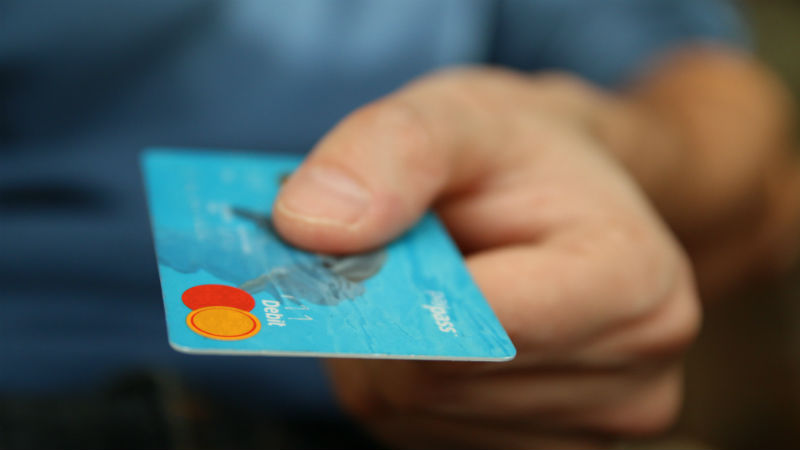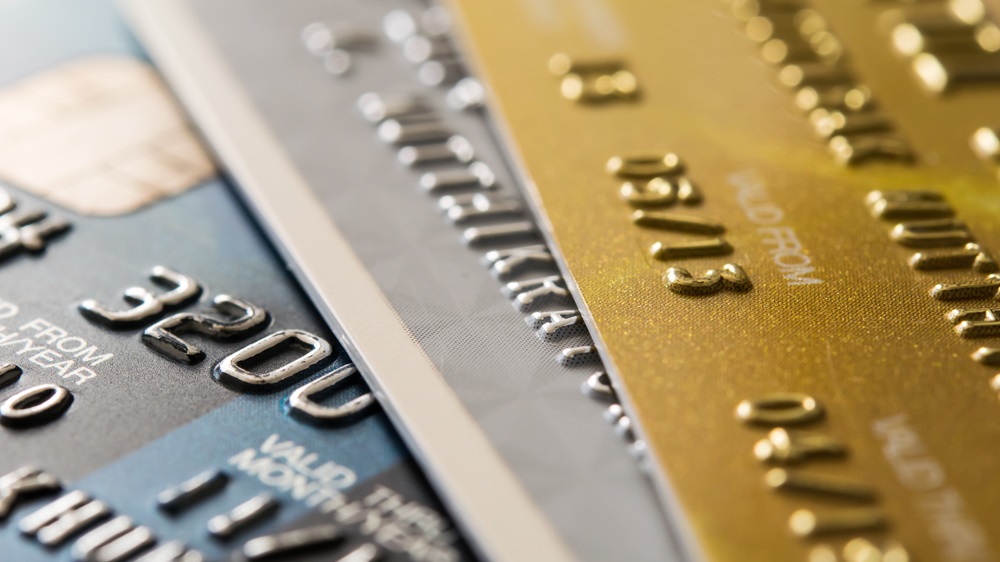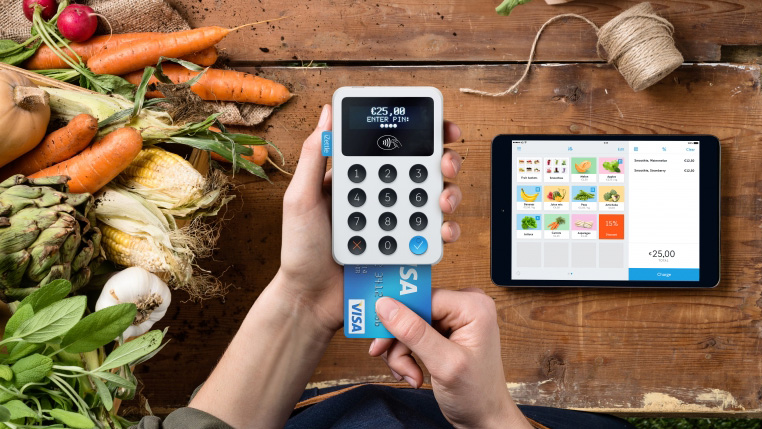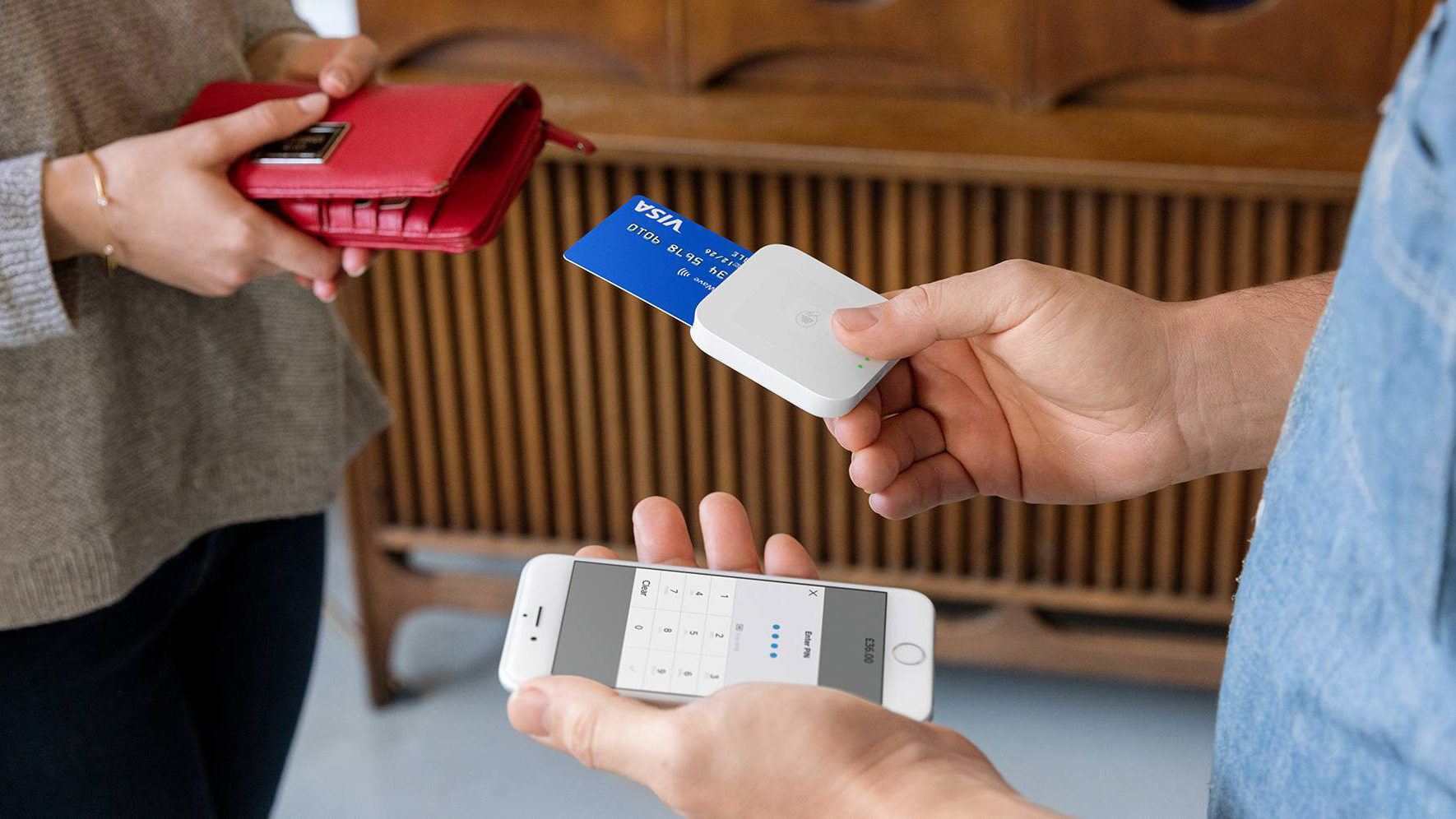
While plenty of small and medium-sized businesses do accept debit and credit card payments there are still plenty that don’t. If you’re a business owner who falls into that latter category of not being able to process transactions via card then you’re definitely missing out on trade.
In the wake of the coronavirus pandemic and society’s push towards an increasingly cashless world, it’s fast becoming essential to get set up for taking card payments. Whether they’re contactless or PIN-based, being able to accept card payments is the way of the future.
- We've put together a list of the best accounting software
- Get your finances in order with the best personal finance software
- Also check out the best bookkeeping software on the market
Simple solution
There’s actually no sound reason for not being able to process card payments because the options for allowing you to do this are many and varied. Taking a payment from someone using a card is no longer the costly hassle it used to be. In fact, card payment processing has become quick, easy and cost-effective too.
You’ll almost certainly get customers coming back for repeat visits if it involves minimal faff for them, especially if you’re running a public-facing business where people used to have to remember to bring cash with them.
Nowadays your clientele want speed and convenience, and are increasingly reluctant to bring physical notes and coins with them for a variety of reasons. Many of these reasons have merely been exacerbated because of Covid-19.
Cashless society
On a purely practical point, going cashless is definitely going to be better for you and your business. You won't have to handle lots of grubby cash for a start, or tot it all up at the end of the working day or, indeed, haul it to the bank to pay it in.
Card processing gets rid of all that and, in an increasingly digital business world, having all your transactions already logged in a payment system should result in speedier bookkeeping too.
Are you a pro? Subscribe to our newsletter
Sign up to the TechRadar Pro newsletter to get all the top news, opinion, features and guidance your business needs to succeed!
Another great thing about being able to take card payments is that it doesn't matter what size business you have because you’ll be able to find a system that suits your requirements. Card processing has become a very diverse marketplace, with the major players and more independent companies creating payment transaction packages to suit all kinds of businesses.
The competition between the different card payment processing companies has made things much more competitive too.

Major players
To start taking card payments, either contactless or PIN-based, you’ll need to consider a few factors, all of which will go together to produce your processing potential. You’ll need to work with a few different technological ingredients along the way, including the card issuer who gave your customer their means to pay.
There’ll also be an acquirer in the payment chain, which is the company that processes the transaction. You’ll also have contact with the card scheme or brand of card that the customer is using. Depending on which ones you accept this will involve many of the usual names, such as Visa, Mastercard, American Express and so on.
- Check out the best business password management software
Convenience factor
Of course, offering the convenience of being able to take cards, be they contactless or PIN-based is going to involve a little bit of investment if you’re running a business. However, pick the right system and you should find the running costs justify themselves because you’ll be processing more transactions.
If you’re going to be using a card payment terminal, of which there are numerous available through a variety of schemes, you’ll end up paying a specific rate for both credit and debit card processing.
Chip and PIN processing for the card in its country of origin has become very affordable now, so you’ll be charged a small amount for each transaction or in some cases a percentage of the item or service being sold.
- We've highlighted the best credit card processing services
Processing costs
If you’re going to be accepting card payments then you’ll need a merchant account so that you can process transactions from the various card networks, such as Visa, Mastercard, American Express and so on. This effectively allows your transaction to join up the dots between the customer’s bank, or card issuer, and the processing terminal.
Having a merchant account will mean there’ll be processing fees, a contract (depending on what sort of deal you have) along with other miscellaneous costs. It will also give you an added level of security to protect yourself from fraud and other financial issues that can occasionally occur depending on the way a payment has been made.
That’s why aggregators like the ones we’ll mention later on help make the process much simpler for many smaller businesses that don't want the complications faced by larger firms faced with having a full-blown merchant account.

Payment hardware
In order to process contactless and PIN-based payments you’ll also need hardware, in the shape of a terminal. Where once these were mainly chunky devices, these days many businesses get along perfectly fine with a much smaller point of sale (POS) pin pad.
If you’re getting set up with a payment processing account then there are many deals, with some offering a free processing terminal as part of the package.
However, increasingly the beefy chip and PIN machine is being sidestepped and small business owners are opting for mobile card readers. These neat little gadgets often work in tandem with an app, which can be installed on your phone or tablet, and allow you to process payments without fuss.
Better still, due to their size and the aggregator technology they use it's often easy to process payments from just about anywhere by using an online merchant account.
- Check out the best mobile credit card processors
Going portable
Portable card machines can get a connection via your mobile phone or tablet, using Bluetooth, while the app on your mobile device then does the transactional work. Customers can enter their PIN or tap their card on the supporting reader and payments can be processed. It’s quick, easy and doesn't need bulky hardware.
There are card readers that work with iOS and Android and many will work across Wi-Fi, 3G or 4G.
The other big appeal with a portable card machine is that they often work on a pay-as-you-go basis. Depending on the deal being offered, you might get a card machine for free, or you might have to purchase one outright.
While some deals may have a subscription plan, other options are frequently contract free and don't carry monthly fees. Best card payment machines at the moment include those from Zettle, SumUp, Square, PayPal and Worldpay.
Signing up can usually be done online and as part of that you’re usually able to order the contactless payment machine, which will be needed to begin processing transactions.

Fees and functions
It’s worth looking at our buying guides and shopping around to see what kind of deals are available on contactless or PIN-based systems. You might find that there’s an initial fee for signing up with a payment processor, but quite often this fee is waived.
You’ll need to factor in ongoing fees and also miscellaneous charges, such as a cancellation penalty if you decide you don't want to continue with a card processing deal.
Being able to take card payments should be seen as a longer-term investment and you should do your sums and try to look at the bigger picture. Some deals look great on first inspection, but behind the headline-grabbing figures to lure you in some deals can actually work out more expensive over time.
Be sure to pick through the small print too, as there can frequently be things you might not spot in your initial enthusiasm to sign up and start processing payments.
However, the overall convenience factor of being able to take contactless or PIN-based payments more than outweighs any minor negatives.
It could put your business in a much better place, even more so since the way people spend their money is changing towards being increasingly cashless.
- Also take a look at our roundup of the best tax software for small businesses
Rob Clymo has been a tech journalist for more years than he can actually remember, having started out in the wacky world of print magazines before discovering the power of the internet. Since he's been all-digital he has run the Innovation channel during a few years at Microsoft as well as turning out regular news, reviews, features and other content for the likes of TechRadar, TechRadar Pro, Tom's Guide, Fit&Well, Gizmodo, Shortlist, Automotive Interiors World, Automotive Testing Technology International, Future of Transportation and Electric & Hybrid Vehicle Technology International. In the rare moments he's not working he's usually out and about on one of numerous e-bikes in his collection.
